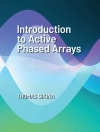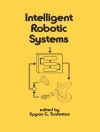Almost every month, a new optimization algorithm is proposed, often accompanied by the claim that it is superior to all those that came before it. However, this claim is generally based on the algorithm’s performance on a specific set of test cases, which are not necessarily representative of the types of problems the algorithm will face in real life.
This book presents the theoretical analysis and practical methods (along with source codes) necessary to estimate the difficulty of problems in a test set, as well as to build bespoke test sets consisting of problems with varied difficulties.
The book formally establishes a typology of optimization problems, from which a reliable test set can be deduced. At the same time, it highlights how classic test sets are skewed in favor of different classes of problems, and how, as a result, optimizers that have performed well on test problems may perform poorly in real life scenarios.
Table des matières
1. Some Definitions.
2. Difficulty of the Difficulty.
3. Landscape Typology.
4. Land Gener.
5. Test Cases.
6. Difficulty vs Dimension.
7. Exploitation and Exploration vs Difficulty.
8. The Explo2 Algorithm.
9. Balance and Perceived Difficulty.
A propos de l’auteur
Maurice Clerc is recognized as one of the foremost particle swarm optimization specialists in the world. A former France Telecom Research and Development engineer, he maintains his research activities as a consultant for optimization projects.












